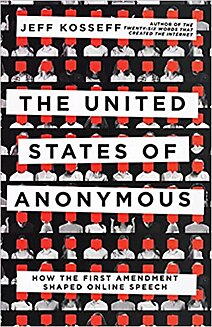Why did those opposed to or in favor of the Constitution write under pseudonyms? Why did Occupy Wall Street protestors wear Guy Fawkes masks? Why do so many people seek to maintain a level of anonymity in their online activities—including web surfing and posting on social media? In the debate over the right to conceal one’s identity versus the potential harms of anonymity, is it possible to strike a constitutionally sound balance? In his latest book, The United States of Anonymous: How the First Amendment Shaped Online Speech, Jeff Kosseff tackles these and other questions through primary-source research and interviews with participants in the debates, as well as through court cases that have shaped the current legal and political climate impacting anonymous speech and the First Amendment. Join us for a discussion about Jeff Kosseff’s timely new book.






